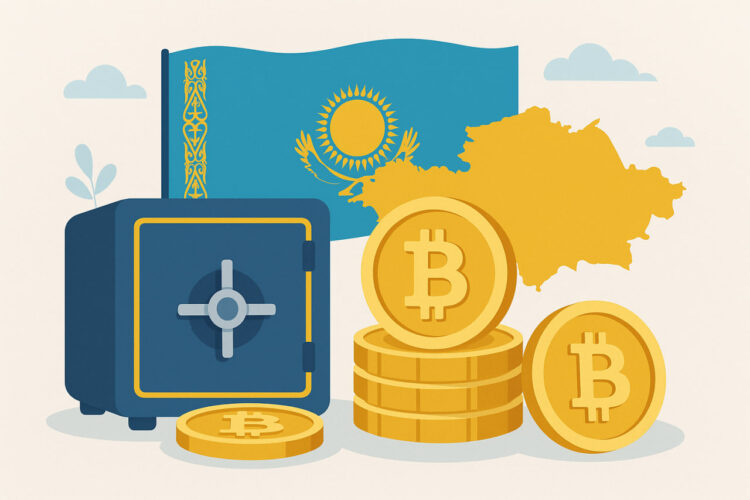Kazakhstan is pivoting sharply from its past restrictive stance on cryptocurrency, aiming to position itself as a major player in the global digital asset space.
The country’s sovereign wealth fund is preparing to include cryptocurrencies within its national reserves, following a strategy similar to that of Norway, the United States, and several Middle Eastern economies that have diversified their portfolios with crypto assets.
Kazakhstan Considers #Bitcoin in National Reserves, Eyes State-Backed Crypto Fund.
Kazakhstan is exploring the possibility of including crypto-related assets in its national investment strategy, according to National Bank Governor Timur Suleimenov.
Officials also plan a… pic.twitter.com/adyUATmLWz
— TheCryptoBasic (@thecryptobasic) July 15, 2025
This move marks a significant evolution from Kazakhstan’s earlier tough regulations on crypto mining, which were primarily driven by concerns over energy consumption and taxation. Now, the government plans to allocate a portion of its gold and foreign exchange reserves, alongside sovereign wealth assets, into crypto-related investments. Notably, cryptocurrencies confiscated through law enforcement will form part of a dedicated reserve, with specific infrastructure being developed to manage these holdings efficiently.
National Bank Chairman Timur Suleimenov highlighted that Kazakhstan studied leading sovereign wealth funds and found their direct investments in crypto or related ETFs and shares to be modest but promising. Drawing from these insights, Kazakhstan aims to integrate crypto as a strategic asset class to diversify and future-proof its national wealth.
In addition, Kazakhstan is considering requiring state-affiliated enterprises involved in crypto mining to contribute a share of mined cryptocurrencies to this reserve, effectively treating it as a new form of tax or compulsory contribution. To strengthen regulatory oversight, the government also plans to penalise cryptocurrency transactions conducted outside licensed platforms and impose restrictions on digital asset advertising. These measures reveal a clear intent to formalize the crypto ecosystem while limiting unregulated activities.
Supporting its ambitions, Kazakhstan recently launched “CryptoCity,” a pilot zone designed to facilitate regulated crypto payments, reinforcing the country’s advancing infrastructure and crypto adoption. Ranked 57th in Chainalysis’ 2024 Global Crypto Adoption Index, Kazakhstan is gaining momentum as both a strategic mining hub and an emerging sovereign investor in the crypto space.
This comprehensive approach demonstrates Kazakhstan’s commitment to harnessing the transformative potential of crypto, striking a balance between innovation and regulatory prudence to position itself ahead of traditional powerhouses like Norway and the United States in digital asset integration.
If you want to read more news articles like this, visit DeFi Planet and follow us on Twitter, LinkedIn, Facebook, Instagram, and CoinMarketCap Community.
“Take control of your crypto portfolio with MARKETS PRO, DeFi Planet’s suite of analytics tools.”





















